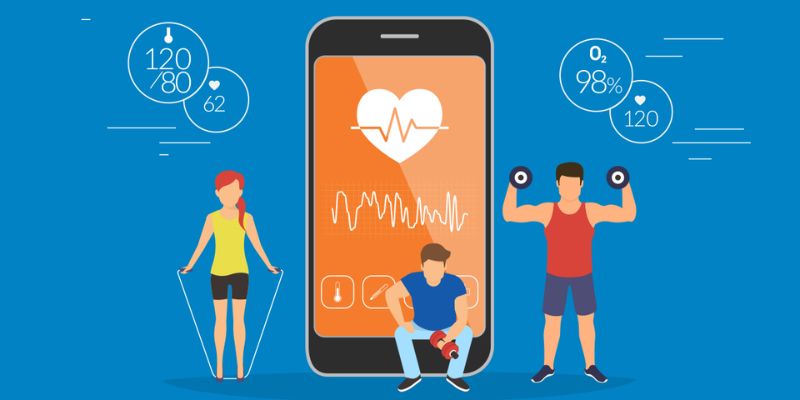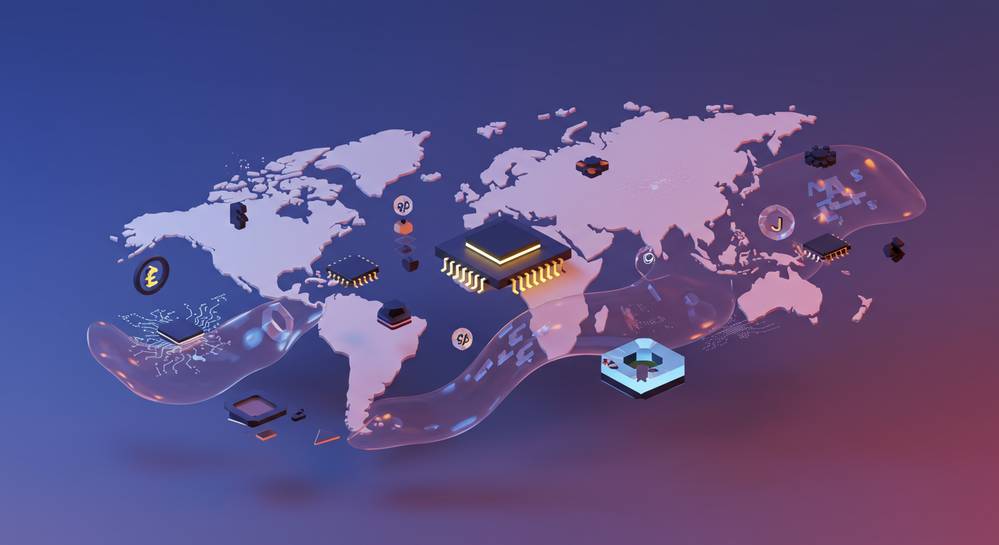Emerging Trends in Computer Science: Unlocking Future Innovations
In this fast-paced tech world, emerging trends in computer science and their potential applications keep us all on our toes. Imagine a future where AI can think like a human, where tiny gadgets talk to each other to make your home smarter, and where your data is safer than ever. That future is knocking on our doors, and I’m here to show you what’s possible. The latest in AI and machine learning isn’t just cool – it’s revolutionizing industries. Quantum computing and blockchain? They’re not just buzzwords; they’re the keys to next-level security and speed. And when you toss IoT and edge computing into the mix, you get a recipe for tech that not only connects but also protects. But let’s not forget that with great power comes great responsibility. We’re wrestling with big questions around AI and ethics, making sure that as we innovate, we also protect.READY TO DIVE IN? Let’s explore what’s changing in our world and uncover the innovations set to redefine tomorrow.
The Evolution of Artificial Intelligence and Machine Learning
Advancing AI with Deep Learning Breakthroughs
Deep learning is a big deal in the world of AI. It helps computers learn from experience and understand the world in terms of a hierarchy of concepts. Because the computer gathers knowledge from experience, this is not a task that requires human operators to formally specify all of the knowledge that the computer needs. The hierarchy of concepts allows the computer to learn complicated concepts by building them out of simpler ones.
Imagine teaching a child to recognize dogs. You might show them many different pictures and say, “This is a dog.” Eventually, the child understands and is able to identify dogs in real life. Deep learning does something similar. It finds patterns and uses those patterns to make sense of things.
Deep learning has led to major improvements. It helps in reading text, language translation, and even strategies in complex games. It’s like having a super-smart helper. It can learn from a lot of info and guess what comes next, like picking the next move in a game, or guessing which movie you’ll like.
Machine Learning Advancements Shaping Industries
Machine learning advancements are changing many fields. Think of health, where it can help doctors find signs of sickness early. It’s also big in business. It can predict trends, so companies know what customers want next. Let’s not forget cars that drive themselves. They use machine learning to navigate roads safely.
Even our homes are getting smarter. With machine learning, your fridge could remind you to buy milk. Plus, chatting with computers gets easier. That’s because of something called natural language processing, or NLP. This makes machines better at understanding us.
Machine learning uses lots of data to improve. It’s all about spotting patterns, like how a baby learns to speak by listening. But machines can learn much faster, going through millions of examples.
Remember, with great power comes a need to think about doing the right thing. Machines are smart because we teach them. So, we have to teach them to make choices that are good for everyone. That’s what we mean by ethical AI. We want AI to help us, not harm us.
Every day, scientists and engineers like me work to make these systems even better. We look at how the brain works to get ideas. We call this field neural networks. It’s pretty cool stuff. It’s about connecting tiny bits in ways that can do big things. Think of it like teaming up lots of tiny brains to solve problems.
So, AI is all about teaching machines to learn. And as they learn, they can do more to help us. It’s an exciting time, like opening doors to rooms full of treasures. We’re just getting started, and there’s much more to discover and create.

The Rise of Quantum Computing and Blockchain
Exploring the Quantum Computing Potential
Quantum computing is shaping our future. It’s like a super-fast brain for computers. It solves big problems way faster than regular computers. Regular ones use bits, like on-off switches. But quantum computers use qubits. Qubits can be on and off at the same time. It’s like being in two places at once! This lets quantum computers tackle hard problems in science and math.
Experts say quantum computing could make new drugs faster. It could also make our internet super secure, and even fix big traffic jams. Companies and schools are racing to make the first best quantum computers. They use things like super cold temps and special materials to keep the qubits stable. If they solve it, it’s a big deal for everyone.
But it’s not just tech wizards who care. You might wonder, “How does this help me?” Imagine getting things done in seconds, not hours. Or finding cures for sicknesses much quicker. That’s the quantum promise. It’s tricky, but the smart folks working on it are getting closer every day. We’ve got to watch this space!
Blockchain Technology Beyond Cryptocurrencies
Now, let’s chat about blockchain. Most folks think it’s just for Bitcoin. But it’s so much more. It’s like a digital ledger that’s very safe. Once you put something on the blockchain, it’s tough to change. It’s not just one place or person in charge. It’s a whole bunch of computers that agree on the info. That’s why it’s called “distributed ledger.”
Blockchain can track things like food from farm to table. This way, you know it’s fresh and safe to eat. It can also prove that a designer bag is real, not fake. Companies really like this. They can see their stuff move from place to place, easy peasy.
Some folks even use blockchain to vote from their phones. They say it’s safe and fair. No one can mess with your vote. It can also help artists get paid when people play their songs online. Really, blockchain can help with anything where you need to know for sure who did what.
So, it’s not all about money. It’s about trust – knowing things are what they seem. And with everyone trying to be sneaky online, that’s worth a lot. Quantum computing and blockchain are really moving fast. They could change how we live, work, and play. I can’t wait to see what’s next in this wild tech adventure.

Integrating Internet of Things (IoT) with Edge Computing
IoT Innovations in Smart Home and Healthcare
Our homes and hospitals are getting smarter every day, thanks to IoT. “What is IoT?” you may ask. IoT stands for the Internet of Things. It connects devices like fridges, lights, and heart monitors to the internet. This lets them talk to each other and make our lives easier.
For example, in smart homes, IoT gadgets can learn our habits. They turn lights off when we leave and adjust the thermostat when we come home. This saves energy and cuts down on bills. In healthcare, IoT devices monitor patients. They send data to doctors quickly. This can save lives.
But there’s a catch. All these devices make a lot of data. To keep it private and use it fast, we need something called edge computing. This means processing data near where it’s made, not in a far-off data center. It’s like having a tiny brain in your device that thinks and acts quickly, keeping your info safe and sound.
Edge Computing’s Role in Real-Time Data Processing
Now, let’s chat about edge computing. It’s super important for many reasons. With edge computing, data is crunched right where it’s collected. This is key for things that can’t wait, like driverless cars that need to make split-second choices, or doctors who need health info in a flash to help patients.
Edge computing also means less data over the network. This makes things faster and can save money. Imagine not having to wait for a video to load on your phone. That’s one perk of edge computing. It’s quicker because it doesn’t have to travel far. This quick thinking also helps keep our data safe from hacks.
In short, edge computing gives power to our gadgets, making them faster and safer. It lets us use the huge amount of data IoT devices create in real-time. This can make our homes and hospitals not just smarter, but better places to live and heal.

The Intersection of AI and Ethics in Emerging Technologies
Ethical AI Considerations in Development and Deployment
Imagine a world governed by smart machines. It’s not far off. But as tech grows, we must consider ethics. Is the AI we create fair? Does it respect privacy? How do we keep bias out? These questions shape ethical AI.
Ethical AI means building systems that do right by all users. It starts with data. We need diverse data to avoid bias. This helps ensure AI treats everyone fairly. For true ethical AI, developers must embrace these ideals from the start.
We’re not just building tools; we’re shaping the future. Every line of code counts. Humans set the rules for AI. We decide what’s fair, safe, and just. Keeping ethics in mind leads to AI that betters our lives and respects our values.
Balancing Innovation with Cybersecurity Innovations
Now, let’s switch gears to cybersecurity. It’s vital. As tech evolves, so do threats. We need cutting-edge cybersecurity to keep pace.
Quantum computing and blockchain offer promise. They bring speed and security to our digital world. Quantum computing can crack codes in seconds. But it also protects data like never before. Blockchain keeps records safe and sound across many computers.
We also have machine learning fighting cyber threats. It spots patterns and learns from them. This means it can sense danger before we do. It’s like a watchful guardian for our online world.
Yet, with all these tools, one fact remains—cybersecurity is a race with no end. As we invent, so do cybercriminals. Our job is to stay one step ahead.
As we look to the future, remember that tech is a friend that needs guidance. AI ethics and cybersecurity are two compasses that can lead the way. By considering both, we create a tech world that’s safe and fair for everyone. It’s a big job, but together, we’re up to the task.
In this post, we’ve navigated the twists and turns of tech’s latest marvels. From AI’s leaps forward with deep learning to machine learning’s vast influence across industries, the progression is clear. We touched on quantum computing’s vast potential and blockchain’s reach far past digital money.
The marriage of IoT with edge computing is marking a new era for how we handle data swiftly and smartly – at our homes and in keeping us healthy. Lastly, ethics and safety must join hands with fresh ideas to ensure tech grows wisely.
Keeping up with these changes isn’t just exciting – it’s essential. It’s how we shape a future that’s clever, connected, and secure. Let’s keep our eyes wide open as we step into tomorrow’s tech landscape.
Q&A :
What are the latest trends in computer science that are shaping the industry?
The latest trends in computer science that are reshaping the industry include advancements like artificial intelligence (AI) and machine learning (ML), edge computing, quantum computing, the Internet of Things (IoT), and blockchain technology. AI and ML are becoming more sophisticated, allowing for smarter and more adaptive systems. Edge computing brings data processing closer to the source, reducing latency. Quantum computing promises unprecedented processing power, and IoT continues to connect devices and systems like never before. Blockchain is offering secure and decentralized data management options across various sectors.
How are emerging computer science trends influencing real-world applications?
Emerging computer science trends are significantly influencing real-world applications by revolutionizing industry best practices and increasing efficiency. For example, AI is being employed in healthcare for predictive analytics and personalized medicine, while IoT is being used in smart city development to optimize resources like electricity and traffic systems. In business, blockchain is transforming supply chain management by enhancing transparency and security. Autonomous driving technology, a branch of AI and ML, is also making strides towards safer and more efficient transportation.
What potential applications does quantum computing have, and how could it impact industries?
Quantum computing has the potential to revolutionize various industries by offering new levels of processing power. Its applications range from complex problem-solving in fields such as cryptography, pharmaceuticals, and material science to optimizing logistics and financial modeling. In the pharmaceutical industry, quantum computing could speed up the drug discovery process, helping to find new treatments faster. Additionally, it could provide breakthroughs in cryptography by powering through encryption that currently takes classical computers years to break.
How might AI and machine learning continue to evolve, and what does this mean for future job markets?
As AI and machine learning continue to evolve, we can expect them to become more integrated into everyday business operations and customer interactions. This evolution suggests that future job markets will require a workforce skilled in these areas, as well as a focus on developing emotional intelligence, complex problem-solving abilities, and creative thinking, which are traits less likely to be replicated by AI. Moreover, new job roles will likely emerge to facilitate the collaboration between humans and AI systems, with an emphasis on overseeing AI ethics and governance.
Can you explain the significance of edge computing and how it compares to traditional cloud computing?
Edge computing is significant because it processes data closer to the source where it is generated, unlike traditional cloud computing that requires data to be sent to distant data centers. This proximity reduces latency, improves speed, and enhances the performance of real-time applications such as autonomous vehicles, industrial IoT, and streaming services. By minimizing the distance data has to travel, edge computing also increases privacy and security, as sensitive information doesn’t have to traverse the internet to reach a central server. It’s an ideal solution for scenarios that demand immediate data processing and action.



